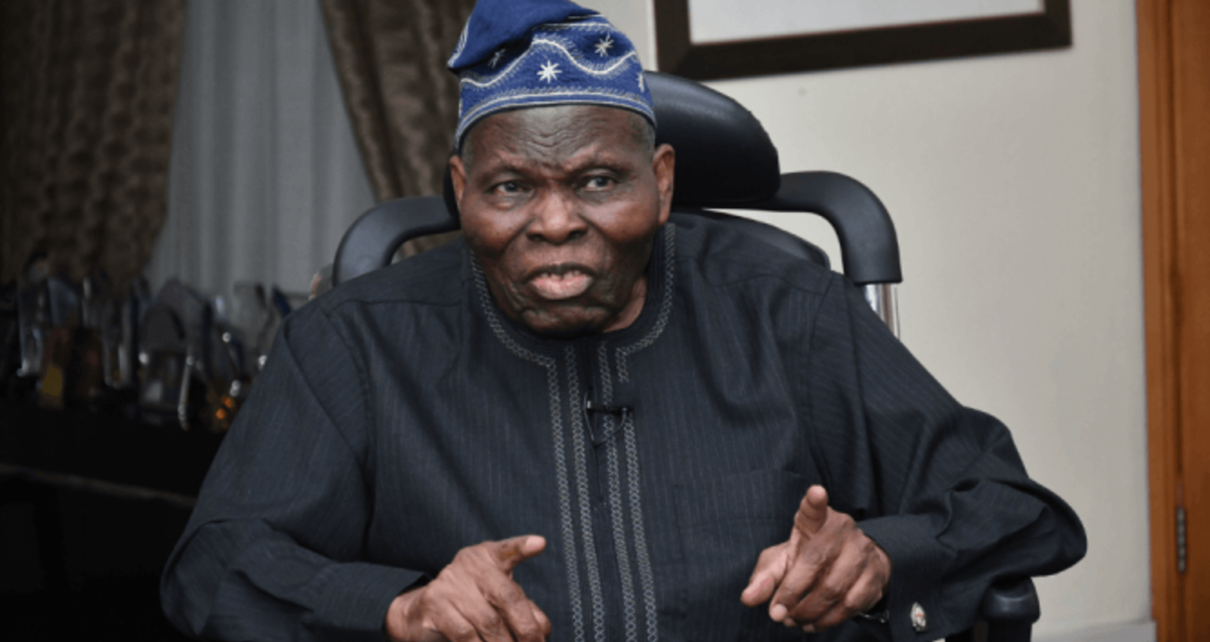By Nkanu Egbe
In a city that moves at breakneck speed, where success is often measured by noise and visibility, the passing of Dr. Christopher Kolade quietly stopped Lagos in its tracks.
He died as he lived—without fanfare. Yet his passing on October 7, 2025, at the age of ninety-two, has stirred something deep in the collective conscience of a nation long hungry for decency in public life.
Kolade was not just a man of his generation; he was one of the few who refused to let time dilute his values. In him, Lagos met a rare breed: a leader who carried power lightly, who made influence feel like service.
A Gentleman Formed by Conviction
Born in Erin-Oke, Osun State, in 1932, he belonged to that vanishing generation raised on duty, modesty, and faith. After schooling at Government College Ibadan and Fourah Bay College in Freetown, he began his career as an education officer.
Then came broadcasting. As Director-General of the Nigerian Broadcasting Corporation, he treated the microphone like a moral trust. Truth mattered to him—not as a slogan but as a standard.
When he moved to the private sector and became Chief Executive and later Chairman of Cadbury Nigeria Plc, he did not trade ethics for earnings. He often told his staff, “Status follows responsibility.” It wasn’t just a quote; it was a creed.
He would later take that same conviction to the diplomatic stage as Nigeria’s High Commissioner to the United Kingdom and, in his later years, to the classroom as a teacher of corporate governance at Lagos Business School.
Beyond management, he taught meaning.
The Lagos He Helped Shape
Kolade’s Lagos was not the restless, glittering megacity we know today. It was a city of institutions—of broadcasters who honoured deadlines, of managers who knew their word was their bond.
His footprints still line the city:
At NBC Ikoyi, where he set professional standards that outlived politics.
At Cadbury’s Agidingbi offices, where his insistence on fairness became company folklore.
At Pan-Atlantic University, where the Christopher Kolade Centre for Research in Leadership and Ethics continues to pass down his principles.
He believed Lagos could be both ambitious and moral. That belief, if revived, could still rescue us.
Integrity in an Age of Influence
Let’s be honest—Kolade’s kind of leadership feels almost outdated in today’s Lagos. We celebrate loud ambition, viral success, and visible wealth. Yet, in all our striving, we seem to have misplaced the quiet virtues that once gave the city its moral weight.
Kolade didn’t need to trend; he mattered. His authority was not borrowed from title or platform—it came from consistency.
He taught that influence, unmoored from integrity, is manipulation. And perhaps Lagos, in its current hustle, needs that reminder more than ever.
The Voices He Left Behind
In the days after his passing, the tributes poured in.
At Lagos Business School, a professor said, “He was a teacher of values, not just management.”
At Cadbury Nigeria, an older employee recalled, “Oga Chris? He listened before he spoke.”
Even on social media, a young entrepreneur wrote, “He showed us that leadership doesn’t have to shout.”
They all pointed to the same truth: his greatest lesson was not in what he achieved, but how he achieved it.
The Lagos We Must Build
Kolade’s death now presents a challenge.
Can Lagos still produce leaders whose character outshines their résumé?
Can we build institutions that reward honesty as much as performance?
From Ikeja’s offices to Yaba’s start-ups, from Alausa’s ministries to the classrooms of Surulere, we owe him a response. The next generation deserves to inherit not just his name, but his example.
Because if Lagos can once again value integrity the way it values innovation, then Dr. Christopher Kolade’s life will not have been just a memory—it will be a blueprint.
He once said, “Leadership is tenancy; time is the landlord.”
His time may have expired, but his rent is fully paid—in service, in faith, and in the quiet dignity that Lagos so desperately needs to rediscover


